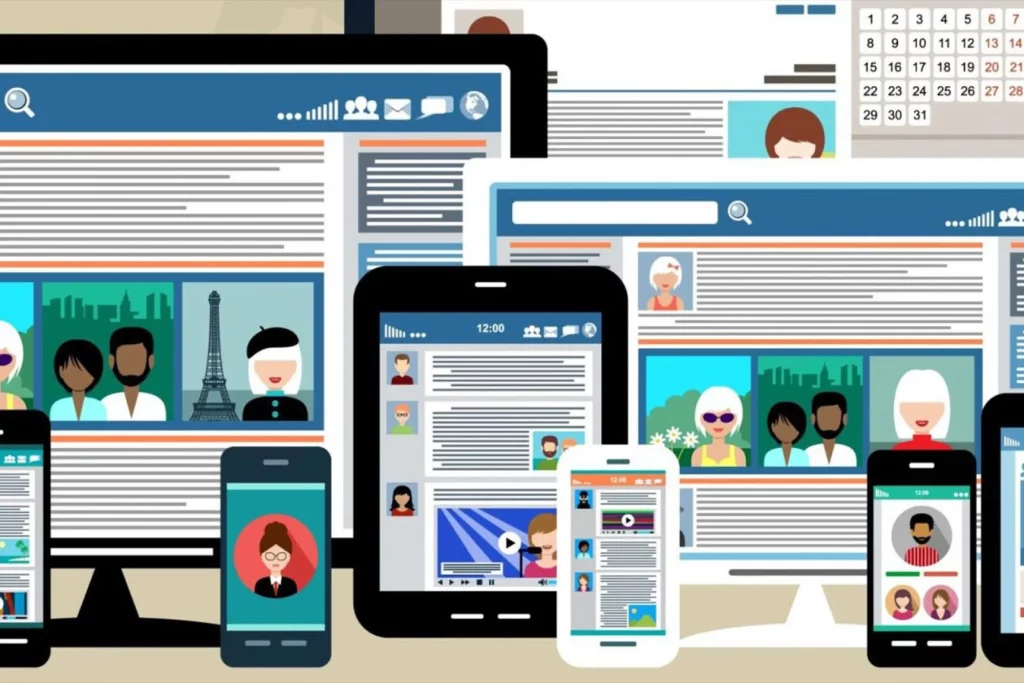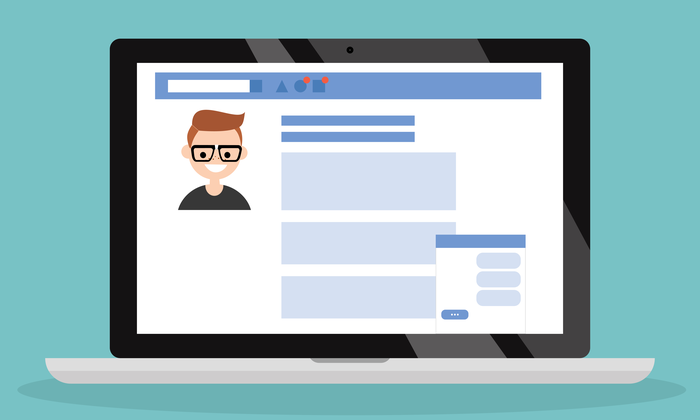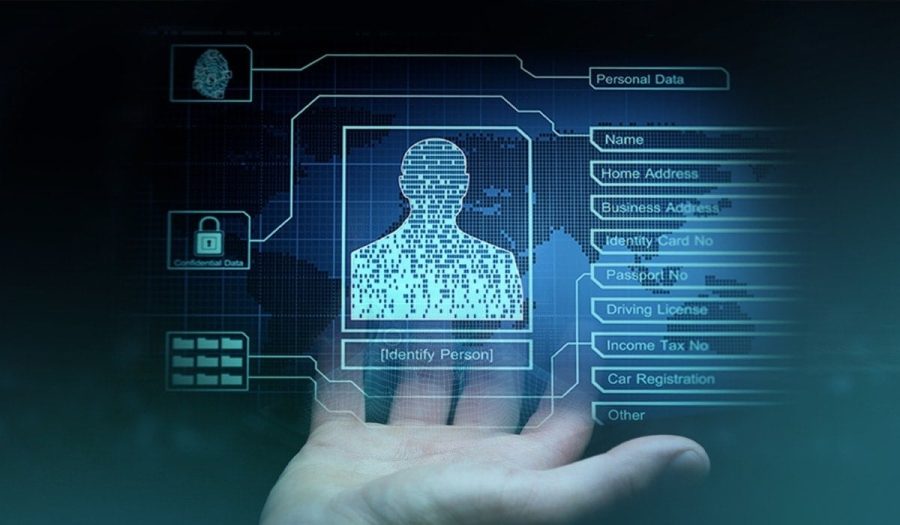We’ve all been there. Scrolling through a new interest, falling down a rabbit hole of videos, joining a niche forum, or carefully crafting a profile for a new community. It feels exciting, like discovering a new part of who you are. But sometimes, a quiet question pops up: Is this a healthy exploration, or am I just using this to escape my real life?
It’s a crucial question, and the answer isn’t always simple. The digital world is a powerful tool for self-discovery, but it can also be a very comfortable hiding place. So, how can you tell the difference?

When It’s Healthy Exploration
Think of the internet as a giant, global playground for your identity. It’s a space where you can safely try on new hats without long-term commitment.
This looks like:
- Connecting with Passions: You’ve always been curious about painting, and you start following artists on Instagram, eventually sharing your own first, shaky attempts. This expands your horizons and adds something positive to your life.
- Finding Your Tribe: You feel like an outsider in your hometown, but online, you find a supportive group for your unique hobby or identity. This connection reduces loneliness and helps you feel understood.
- Learning and Growing: You use YouTube to learn a language, or join a subreddit to understand personal finance. You’re building skills that enrich your offline self.
The key here is that the online activity adds to your real life. It leaves you feeling energized, connected, and more confident to bring those new skills or ideas into your everyday world.
When It’s a Digital Escape
Now, imagine the internet as a giant, fluffy blanket you pull over your head. It’s warm and comfortable, and it blocks out everything outside.
This looks like:
- The Endless Scroll: You’re not really engaging with anything meaningful. You’re just numbly scrolling to avoid thinking about a stressful job, a difficult conversation you need to have, or feelings of anxiety.
- Crafting a “Perfect” Life: You spend hours editing photos and crafting witty posts to create a life that looks nothing like your reality. The focus is on making others think you’re happy, rather than on actually being happy.
- Replacing Real-World Action: Instead of tackling a problem—like applying for new jobs or cleaning a messy apartment—you spend three hours watching other people play video games. The online world becomes a substitute for necessary, but hard, offline action.
The tell-tale sign of an escape is that it subtracts from your real life. When you log off, you feel empty, anxious, or drained. Your real-world problems have grown bigger because you’ve ignored them.

So, How Can You Tell?
Ask yourself these simple questions the next time you’re deep online:
- How do I feel when I log off? Energized and inspired, or drained and numb?
- Is this connecting me to my real life, or helping me avoid it? Am I learning to cook new meals, or just watching cooking shows instead of doing the dishes?
- Am I building something, or just consuming? Creation (writing, making, sharing) often feels more fulfilling than passive consumption.
There’s no shame in using the digital world for either purpose. We all need a distraction sometimes. But the goal is to be honest with yourself. Your online world should be a launchpad for a better life, not a cage that keeps you from living it. Choose exploration over escape, and you’ll build a digital identity that your real self can be proud of.


Hey Zilin,
I greatly enjoyed reading your blog. I thought it was very straightforward, clear and hands-on. I thought it was great how you gave concrete examples on the differences between using media for self-discovery vs using it as a hideaway from real life problems. I believe every consumer should understand the reality behind scrolling and the dopamine rush our brains activate whilst doing it. I have often found myself opening Instagram out of pure boredom, trying to fill the emptiness which helps for a while but as you mentioned in your blog, leaves you more numb and disconnected from reality.
I would like to address the statement you made “The internet is a space where you can safely try on new hats without long-term commitment.” In many ways I see this being true and the positive impacts the internet has had on humanity. However, I would like to argue that everything we do on the internet has a long-term commitment and is not always safe. Everything we post and create on the internet remains there forever. Our digital footprint leaves a trail of data behind revealing our consumption. I believe it is important to be aware of this because it builds our online identity actively and passively (Longstaff, 2025). Also I would argue that it is important to acknowledge the dangerous of the internet and exploring your identity within it. Even connecting online with people, might feel energising at first but become a false reality that helps escape loneliness. In addition, extreme examples like cyberbullying and online abuse can easily start with simple online conversations. I believe that being optimistic about the use of internet and simultaneously being fully aware of its dangers is crucial in contemporary media usage.
Reference
Grant Longstaff. (2025). What is a digital footprint?. [Online]. The University of Law. Last Updated: 13 October 2025. Available at: https://www.law.ac.uk/resources/blog/what-is-a-digital-footprint/ [Accessed 9 November 2025].
Thank you for your opinions. I think I agree with what you said. Indeed internet is not a place where people can do whatever they want; however, the internet is a good way to help people explore themselves. 😀
Hiya, I really like the structure of your post. You’ve also made really great comments about ‘crafting the perfect life’, you make a really good point about people creating the illusion of happiness.
Thx for reading and commenting!
I don’t think I would fall under either category, honestly. I definitely don’t hide online; in fact, I’m probably the most open and honest online. But I don’t explore online, either; I just stick with whatever comes first, mostly out of laziness, so being online or not wouldn’t change much for me in terms of finding community or posting. I don’t think I digitally escape either. If you shut off the internet, I’d still just lie in bed sleeping, but I think I would still fall under the hiding side of things, as I don’t do much. It is a really interesting dynamic to think about, and I wonder if there are more categories to consider. Putting the negatives and positives of the online self into these two things really makes you think about how your online self is and acknowledge the things you should probably change.
Hi Zilin! This is such a thoughtful and relatable post. You’ve perfectly captured the inner dialogue so many of us have in this digital age. I especially appreciate how you didn’t just describe the problem but offered such clear, practical ways to tell the difference between exploration and escape. Your metaphor of the internet as both a “playground” and a “blanket” is brilliant – it makes the distinction so vivid and easy to understand. The three self-reflection questions you suggested are particularly valuable. Asking “How do I feel when I log off?” is such a simple yet powerful tool for building digital self-awareness. Thank you for writing something that doesn’t just critique our digital behaviors, but actually helps us build a healthier relationship with technology. This is the kind of content that makes a real difference in people’s lives!
Reading this really hit home for me. I often shift between using the internet to discover parts of myself and using it to hide from things I don’t want to face. The part about “crafting a perfect life” especially resonated — sometimes it feels easier to polish an online version of myself than deal with the real one. This post made me rethink the difference between creating and escaping.